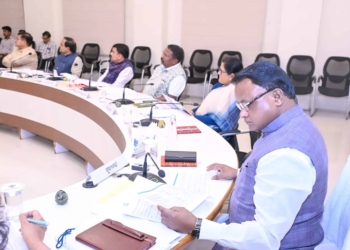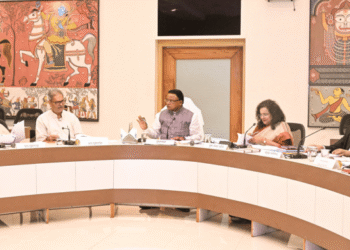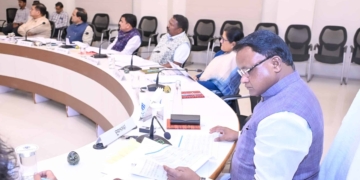The Centre has told the Supreme Court that state governments cannot invoke writ jurisdiction under Article 32 of the Constitution to challenge the actions of the President or Governors in dealing with state Bills.
The submission was made before a five-judge Constitution Bench headed by Chief Justice of India (CJI) BR Gavai.
Centre’s Stand: States Lack Fundamental Rights
Solicitor General Tushar Mehta, appearing for the Union Government, argued that writ petitions under Article 32 can only be filed in cases of violation of fundamental rights. He stressed that states, being constitutional entities, do not possess fundamental rights themselves. Instead, their role is to safeguard the rights of the people.
Mehta further contended that the President and Governors enjoy constitutional immunity under Article 361, which makes their decisions and actions non-justiciable before courts. “No direction can be issued to the President or the Governor in this regard,” he submitted.
Reference to April 8 Tamil Nadu Verdict
The Solicitor General also referred to the Supreme Court’s April 8 verdict, which allowed states to approach the apex court if Governors delay assent to Bills beyond a reasonable time. The Centre argued that this ruling requires deeper judicial examination, as it may upset the balance of powers between constitutional authorities.
Supreme Court’s Observations
The bench, also comprising Justices Surya Kant, Vikram Nath, PS Narasimha and AS Chandurkar, observed that Governors cannot indefinitely withhold assent to Bills. CJI Gavai noted:
“The Governor would not be justified in sitting over a Bill for six months.”
He further questioned the Centre’s argument by drawing a parallel:
“If this Court does not decide a matter for 10 years, would it be justified for the President to step in and issue an order?”
Larger Issue: Judicial Limits vs. Constitutional Delays
On August 26, the Supreme Court had already expressed concern over Governors potentially blocking legislation indefinitely, including Money Bills. The Court posed the question of whether it should remain powerless if such delays continue unchecked.
BJP-ruled states, however, defended the discretionary powers of Governors and the President, maintaining that courts cannot dictate the timeline of assent and that “judiciary cannot be a pill for every disease.”
Presidential Reference Under Article 143
The matter reached the apex court through a Presidential reference made in May 2025 under Article 143(1). President Droupadi Murmu sought the Court’s opinion on whether judicially imposed timelines could bind her or the Governors while exercising discretion over Bills passed by state legislatures.





























